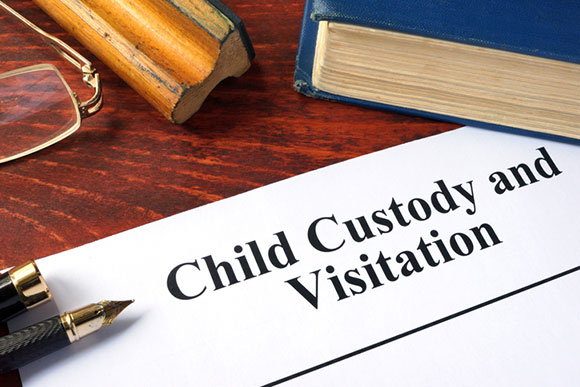Over time, a child custody order may become inappropriate. As circumstances change and children grow, it might be in a child’s best interests to change the child custody.
In Nevada, you can take steps to change a child custody order, but you will likely need the help of an experienced family law attorney in Las Vegas to ensure it’s done correctly. Here’s how to modify a child custody order in Nevada.
You modify a child custody order in Nevada by bringing a motion to the court. You must give the reasons that you want the court to change the child custody order in your case.
What you must prove depends on the type of custody that you have and what you’re trying to change about your custody order. In addition to asking the court to issue a new custody order, you can also change the custody order by an agreement with the other parent.

There are two ways to change a child custody order in Nevada. The first way is by agreement with the other parent. If you and the other parent reach a deal to modify child custody, you can draft a new child custody order and ask the judge to sign it. The other way to change a child custody order is to bring a motion to the court. If the court agrees with you, they issue a new custody order even if the other parent disagrees with it.
The steps to modify a child custody order in Nevada involve drafting the court paperwork, giving the paperwork to the other party and the court, waiting for the other side’s response, and attending a court hearing:
What you need to include in your court paperwork depends on what you’re trying to accomplish. If the other parent has primary physical custody, you have to show that the circumstances surrounding the children have changed. You must show that the change is in the best interests of the child and that the child’s welfare is going to be significantly enhanced by the change in custody. The courts impose a very high burden on the parent making the motion to change custody if the other parent has primary physical custody.
Related: How Does Child Support Work With Joint Custody?
If you share joint physical custody and you want primary physical custody, you must prove that the change is in the best interests of the children. It’s an easier standard than proving a change in circumstances, but it’s still a strict standard to meet. The courts don’t take child custody changes lightly, so it’s essential to back up your request with clear arguments and evidentiary documentation.
When you create your court motion to change custody, you must explain how the circumstances have changed, if you don’t have joint physical custody already. In all cases, you must explain how it’s in the best interests of the child to change custody. The court looks at a number of factors when they evaluate your request. The court considers which parent can facilitate a strong relationship between the child and the other parent. A history of abuse and neglect, the physical and mental health of the parties, and domestic violence can all play a role in the court’s decision.
In your motion, you should go through every relevant factor and explain how it’s in the child’s best interest for you to assume custody. Point to facts, rather than opinions. The more clearly you can explain the situation to the court, the more likely your motion is to be successful.
It’s not enough just to write a motion to change custody; you must be prepared to show the evidence at a hearing. The proof that you need depends on the circumstances of your case. Criminal convictions, the testimony of abuse and neglect investigators, school attendance records, and mental health treatment records are just some of the evidence that you might use to prove your case.
Remember that you must follow the Nevada Rules of Evidence and the Nevada Rules of Civil Procedure. You may call and question witnesses, and the other parent can do the same. Either of you may have a child custody attorney to represent you.
Yes, the non-custodial parent can ask to change child custody in Nevada. Either parent can move to modify child custody. If you have primary custody, joint custody, or if you are the non-custodial parent, you can move the court to change child custody or visitation in Nevada.
A child custody modification is a complex undertaking. The skilled legal team at Half Price Lawyers can help. We can help you draft, file, and serve your custody motion. We can make sure you pursue your child custody modification in a way that’s calculated to advance the interests of your child and give you the best possible path for success. Contact us today for a confidential meeting with our team.